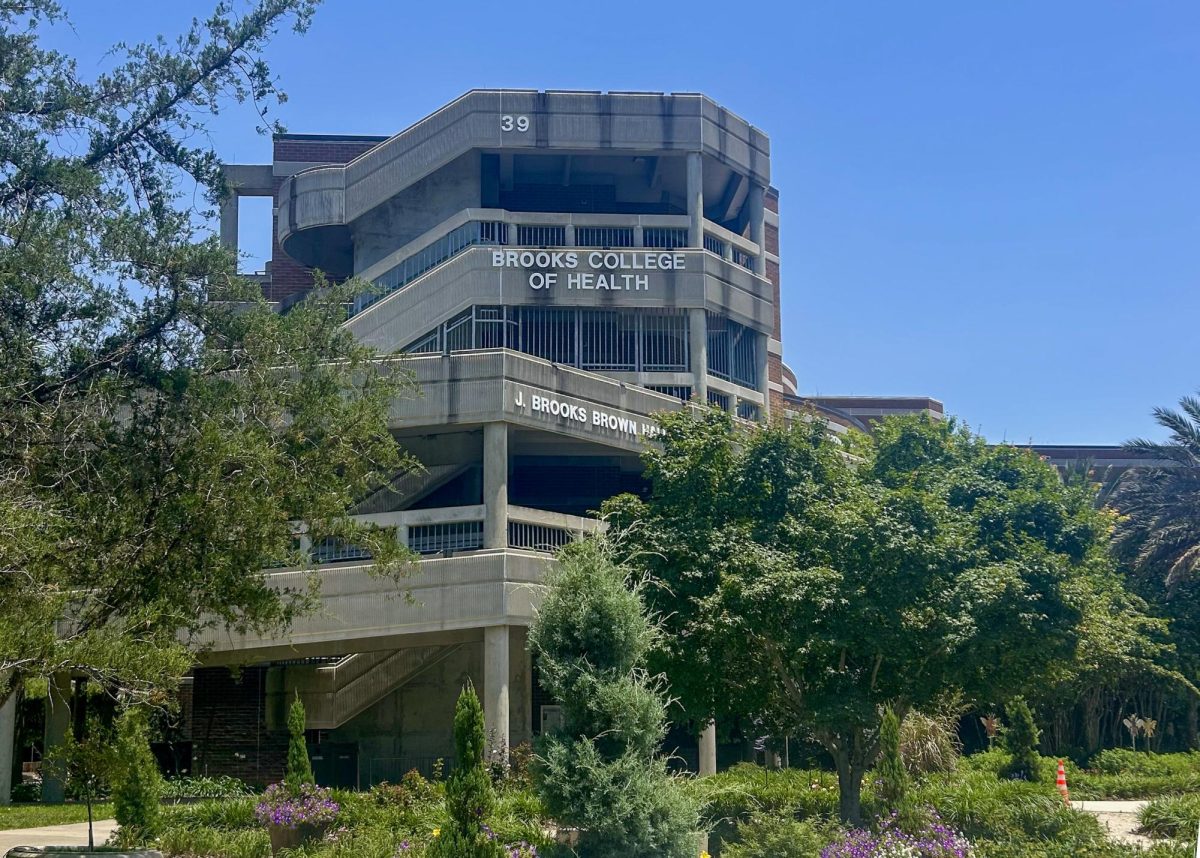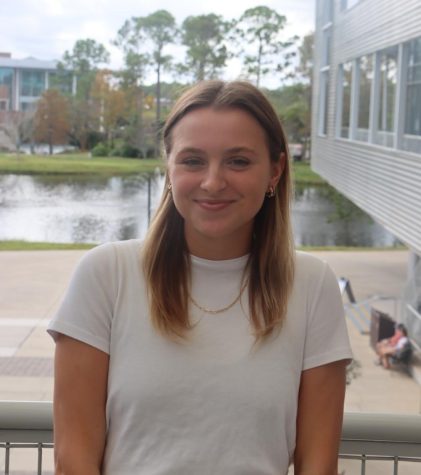The University of North Florida (UNF) first opened its Virtual Learning Center (VLC) in March 2021. Located on the third floor of the UNF Library, students suddenly had access to equipment that could transport them to a variety of virtual realities (VR) in the blink of an eye.
An exciting and on-the-rise technology, VR is frequently advertised for video games but also holds the potential to enhance educational material to give students a deeper understanding of certain topics.
With the help of Dr. Jelena Brezjanovic, a cultural anthropology professor, the anthropology department recently acquired VR technology dedicated to complementing relevant educational material, making this VR lab in cultural anthropology the first of its kind. This technology strengthens students’ perception of a variety of cultures that they can’t find written in a textbook.
While the technology gives anthropology students that extra step toward understanding, it’s open to any and all students interested in the educational content it has to offer.
Dr. Brezjanovic has been a primary overseer of the implementation of VR technology in UNF’s anthropology department. Toward the beginning of the COVID-19 pandemic, students were forced to switch their classes to an online environment which made learning extra difficult. She wanted to find a way to engage students with learning again and found VR to be the perfect accessory.
Because virtual reality requires a defined space to safely experience the technology, students are able to socially distance themselves at the same time. In a world where the ability to travel is limited, VR is a helpful tool.
“[VR] provided an environment where I can bring students back to engage with the different topics we cover in anthropology and to also experience something first-person because virtual reality allows us to experience something we may not be in a situation to experience in real life,” Dr. Brezjanovic explained.
After taking her students to UNF’s VLC, she applied for a few grants through the Digital Humanities Institute and the Office of Faculty Excellence. Between then and April 2022, she has acquired fifteen VR sets called Oculus, which differ from the ones that the UNF library offers.
The different educational materials offered cover a wide variety of real-world issues. One program Dr. Brezjanovic has introduced to her students is called, “Traveling While Black”, which follows the history of African American movements and illustrates the obstacles they have faced throughout American history.
“It basically humanizes the topic of homelessness, then not only humanizes it, but also combats all these stereotypes that are out there, and they have an opportunity to think about what some of the perceived misunderstandings are or stereotypes we have in terms of homelessness,” Brezjanovic said.
She also explains how important it is for anthropology students to have experiences outside of their familiar bubble to understand what it means to immerse themselves in another culture.
Implementing VR in an anthropology setting gives students an opportunity to see what the field could potentially look like and give them a chance to reflect on biases they may need to set aside in order to fully understand and engage in culture.
“It works like a compliment. It gives them an opportunity to think about things, practice how to observe things, experience how they react to things or talk about different topics because not everything is comfortable,” she said about VR’s impact on learning. “Especially because we are always starting from our own cultural norms. It is a great tool that we can incorporate into teaching anthropology or diversity.”
Applying the technology to a classroom environment opens opportunities that students may not be able to have otherwise, but there are some limitations. As with any piece of technology, VR can also experience technical difficulties.
Other problems come from a scarcity of educational programs available. Program content can sometimes be sensitive to viewers. In one program titled “Home After War,” students with sensitivity to flashing lights or who suffer from PTSD are precautioned to not engage in the program. Brezjanovic explains that those who did try but couldn’t finish the VR session still had positive feelings toward trying to use the technology.
Since acquiring the equipment, she has been working with four student research assistants to study how this technology affects emotional response, engagement and learning outcomes. She is also working on publishing a textbook that will provide materials to help both instructors and students learn about this technology and even how to create VR content.
Brezjanovic encourages anyone interested in VR, both students and faculty, to visit the lab, experience the available programs and share their feedback. She explains how the results of this study will be used for a variety of purposes such as new course development, teaching instructors that are interested in using VR in their curriculum and teaching students interested in VR-related research.
Appointments can be scheduled by emailing Dr. Brezjanovic at n01175008@unf.edu.
___
For more information or news tips, or if you see an error in this story or have any compliments or concerns, contact editor@unfspinnaker.com.
















